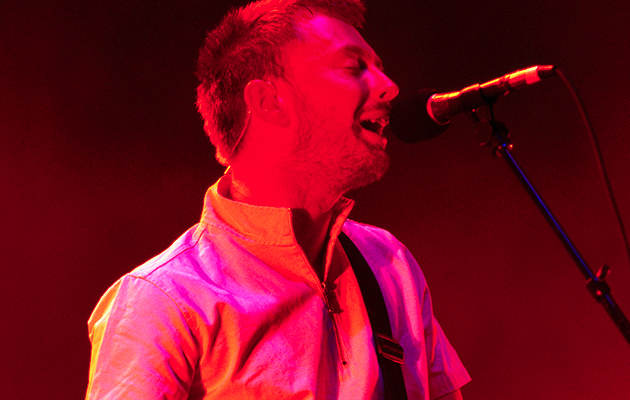"We thought we were trapped in one of those Twilight Zone slow time machines…" With Amnesiac, their second smash hit album of uneasy listening in just over six months, at the top of the charts on both sides of the Atlantic, Radiohead are even more determined to retain their anonymity. As for Thom ...
After 10 years of break-ups and breakdowns, Radiohead have settled into some kind of workable routine. They live apart from the media glare. They tour in short bursts, usually when they choose. They have their own studio, their own rhythm, and the commercial mandate to do what they please. They now seem to be down to one serious band meltdown per album.
“It’s been pretty stable, really,” assesses the long-suffering Colin Greenwood, the band’s chief diplomat and peacemaker. “I used to think it’s all going to end tomorrow, every day – but I don’t think about that any more because it’s unhealthy. Am I ready for it to end? Probably not. You know people go to The Priory for rehab for drugs? I’d have to go to rehab for organising my life.”
Does Greenwood need Radiohead more than Radiohead need him? “Definitely. That’s the one most emphatic answer, to all the questions in your interview; a big ‘Yes’, underlined, italicised, with a flashing red light behind it.”
Right now, there are half-finished tapes all over Radiohead’s studio, but no future masterplan, no clear direction. “It’s much more like, this is an ongoing, healthy, slightly less destructive, slightly more enjoyable thing that we decided to do,” says the singer, visibly brightening as his car ride back to Oxford looms.
But if an air of calm hangs over Radiohead today, history tells us it won’t last. Yorke will find the success of Amnesiac too much to handle. There will be tears and traumas. The crucifixion of Thom Yorke dictates that genius equals pain.
“It’s not genius,” corrects Ed O’Brien, ever so politely, before dashing off to a gathering of Victorian polar explorers. Or not. “It’s just that if you want something good to come out of something, you have to put in a lot of effort, and that involves a lot of hard work, and a lot of blood, sweat and tears. No different to anything, no different to what we all do.”
The interview is over. Radiohead are moving onwards. Maybe we’ll travel with them, or perhaps we’ll get off at the next stop. Thom Yorke might make the world a finer, fairer place. Or maybe he will end up choking on the festering contempt for his fellow man which seems to fuel his bilious lyrical worldview.
“Really? Hmmm,” he considers the possibility for a moment, scanning his mental hard disk. Eventually, he decides: “I don’t think it’s about people. A lot of it’s about self-created demons. People build themselves their own mazes that they can’t get out of… but no, I’m not negative. In fact, if I was negative about strangers in the street then I think I’d go mad, definitely.”
So Thom Yorke has some faith in the human race?
“Yes,” he answers softly, carefully. “Given time and the correct amount of information. That’s one of the things I really hang on to. If you explain yourself, then things will be all right. Ignorance is the reason people get hurt.”
The people paid to protect Thom Yorke are hovering now, eager to whisk him away to safety. In fact, so keen is he to escape that he gets up from the table and leaves through the wrong exit, searching for a taxi that isn’t there. He returns a minute later, laughing sheepishly.
Uncut is determined to bid farewell to pop’s most paranoid android on an up note, a note of conciliation and of we-must-do-this-again. You know what, Thom? You really should do more interviews.
He’s already halfway through the door when he responds.
“You know what…?”
He never does finish that sentence.



